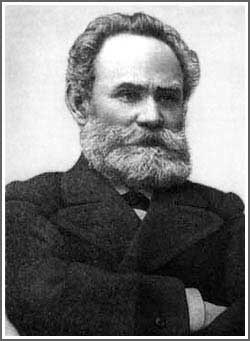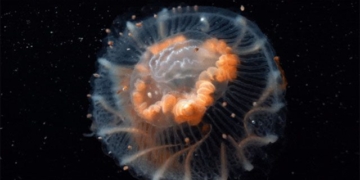 Ivan Pavlov (1849-1936) was a Russian psychologist. After graduating from high school, he enrolled at Saint Petersburg University, where he studied natural sciences and earned a master’s degree in physiology. Due to his significant achievements in the field of digestive physiology, he was awarded the Nobel Prize in October 1904, becoming the first physiologist to receive this prestigious honor. His theory on higher nervous activity is of great importance to medical and psychological research. He is often called the “Greatest Biologist in the World.”
Ivan Pavlov (1849-1936) was a Russian psychologist. After graduating from high school, he enrolled at Saint Petersburg University, where he studied natural sciences and earned a master’s degree in physiology. Due to his significant achievements in the field of digestive physiology, he was awarded the Nobel Prize in October 1904, becoming the first physiologist to receive this prestigious honor. His theory on higher nervous activity is of great importance to medical and psychological research. He is often called the “Greatest Biologist in the World.”
As a child, Pavlov lived in a small town in Central Russia. His father was a pastor, and with a large family and low income, life was relatively difficult.
Pavlov’s father was very strict with his children, personally teaching them woodworking and gardening. At a very young age, Pavlov had to help his father plant vegetables and assist his mother with household chores. He was a child with a rich imagination, keen observation skills, and showed great determination and perseverance in everything he did.
At that time, children in Russia enjoyed playing the game “Nine Trees.” Pavlov loved this game. Players had to place a wooden “target” in a designated spot, stand at a distance, and throw a small stick at the target; whoever hit the most targets would win. However, after each game, they often lost the wooden targets because they would fly away and be hard to find. Pavlov usually carved the wooden targets himself.
One day, after school, his friends invited him to play “Nine Trees.” As soon as Pavlov put down his books, he rushed out but suddenly remembered that he hadn’t carved the wooden target yet. He quickly ran back to the kitchen, grabbed a knife, and found some small pieces of wood to carve while sitting on the stairs. His friends, impatient, urged him to hurry, but he insisted on carving them himself. Once he finished the last target, he ran outside to join his friends, where he could throw the stick with his left hand and often won the game.
Pavlov was a patient child in all his endeavors. One time, his father sent the two brothers to the garden to dig holes for planting trees. They worked hard and were drenched in sweat. When their father saw them, he frowned and said, “You are digging in the wrong place; you have to start over.” The younger brother, feeling disheartened, sat down on the ground and refused to continue. Pavlov picked up the spade and continued digging with their father without complaint. Seeing this, the younger brother reluctantly got up and joined in. The three of them diligently dug at the hard soil, and after a while, their father quietly observed them and then cheerfully said, “Alright, you don’t have to dig anymore.” It turned out that he hadn’t meant they were digging in the wrong spot; instead, he wanted to cultivate patience in his sons and challenge them. Pavlov’s patience would later help him achieve great success in his experiments.
Pavlov was very fond of reading. His home was filled with many progressive books, and by the age of 13, he had read numerous famous works. Gradually, Pavlov developed an interest in scientific literature on physiology, finding certain biological phenomena and small experiments described in the books particularly new, interesting, and he yearned to read more of this type of literature. While studying at school, he did not enjoy theology and decided to go to Saint Petersburg to attend a university with a focus on physiology, which was his greatest interest.
 Pavlov’s father understood his son’s thoughts but did not scold him; instead, he encouraged him: “You have chosen your path, so do not fear difficulties. Be persistent in your journey.” Heeding his father’s advice, Pavlov went to Saint Petersburg University alone to begin studying the physiology he loved.
Pavlov’s father understood his son’s thoughts but did not scold him; instead, he encouraged him: “You have chosen your path, so do not fear difficulties. Be persistent in your journey.” Heeding his father’s advice, Pavlov went to Saint Petersburg University alone to begin studying the physiology he loved.
———————————-
Read more: “Pavlov – Conditioned Reflex“

















































